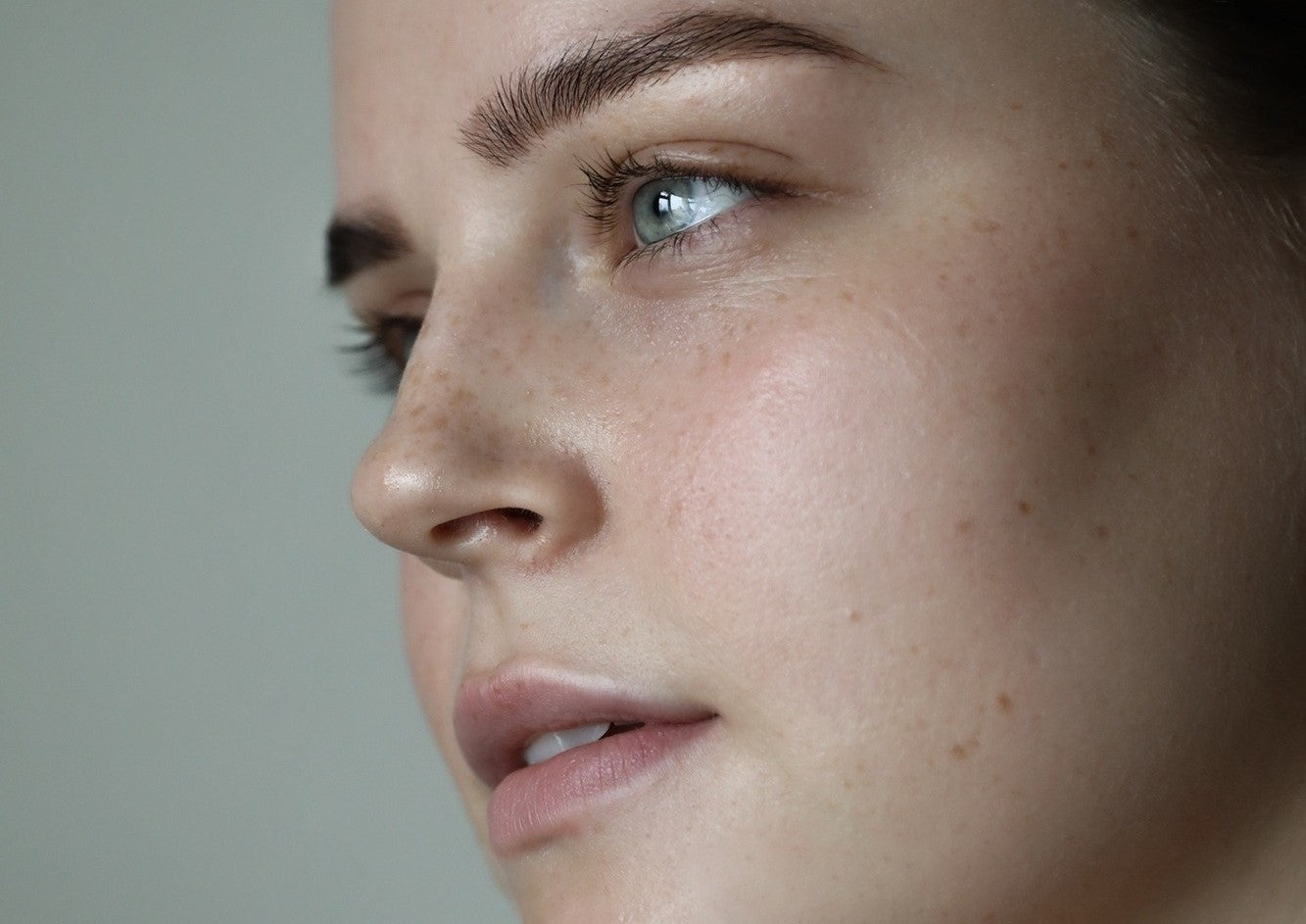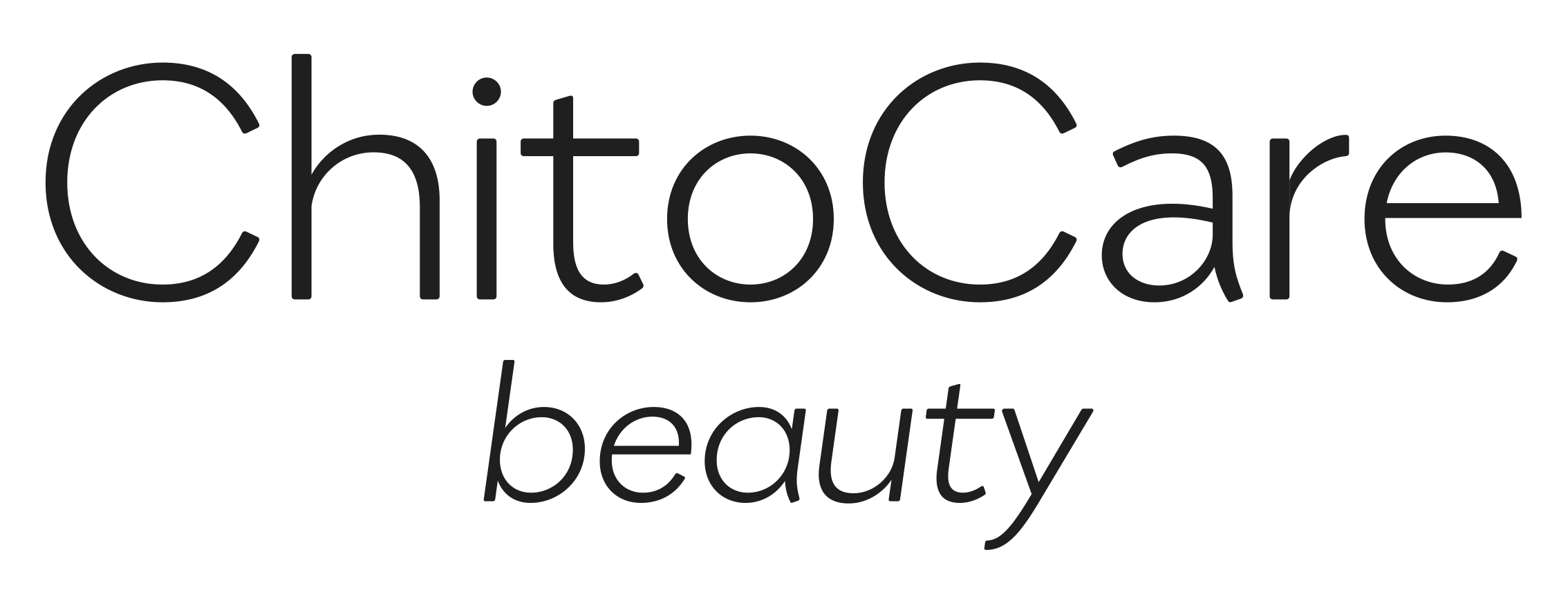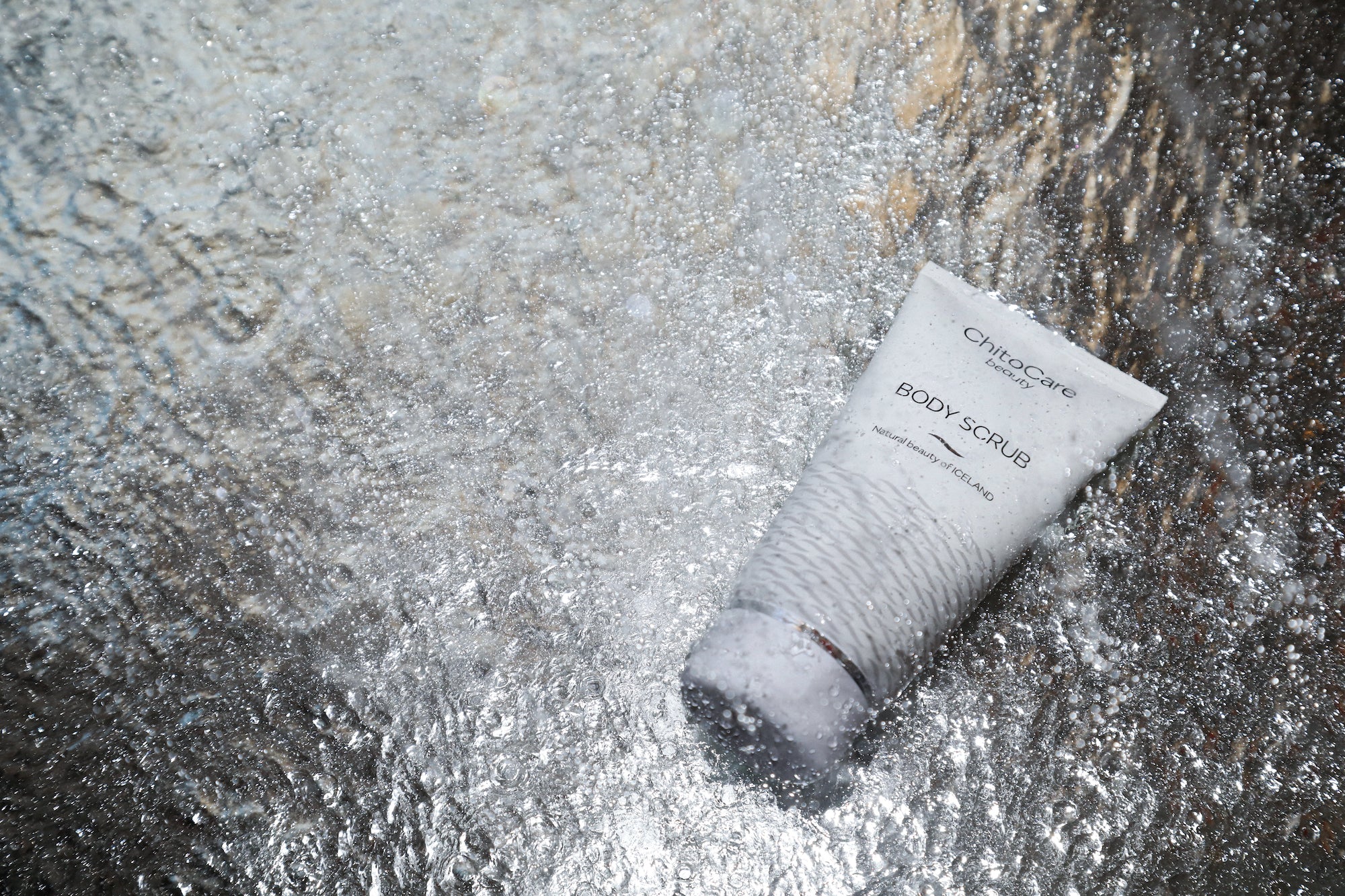
How Skin Type Can Change
Each of us is born with a skin type. However, our skin type can change, and this can often come as a surprise. Paying attention to these changes can help us care for our skin better. Here we look at how these changes can occur.
When we are born, each of us starts off with a specific skin type. There are six basic types: normal, oily, dry, sensitive, hyperpigmented, and combination. We tend to think of our skin type as something fixed, however our skin is constantly adapting to internal and external factors, balancing itself to remain healthy. And our skin type can in fact change.
At ChitoCare beauty we understand that information is a tool for making more informed skincare choices, so here we look at what can cause our skin type to change, and how these changes manifest.
Skin type can change
Our skin type is largely predetermined by genetics; however, many factors affect or bring about changes in skin type. These include age, illness, nutrition, medication, environmental factors, and hormonal changes (especially during puberty, pregnancy and menopause). The largest organ in our body and our first barrier of protection, our skin is constantly adapting and reacting to a changing environment. Throughout our lifetime, our skin works to balance itself and, in doing so, goes through biological changes.
Thankfully, there are ways of telling if one’s skin type has changed and, as long as these signs are observed, appropriate skincare action can be taken to help remedy any negative side effects. The skin of our face is the one most exposed to the elements, so many changes, both internal and external, can most often be observed there first.
Why does skin type change?
The factors behind skin type changes are often interconnected. For example, a change of age often comes with a shift in hormones, while a change of climate can cause a change in diet. Therefore a holistic and personalized approach to skincare can be greatly beneficial, as each person’s skin is unique and factors affecting and improving skin health differ from person to person.
Age
As we go through our lifecycle, the layers of our skin change with age. Babies and young children often have a flawless complexion, rosy cheeks and soft, smooth skin. However, babies and children can often come up in hives, rashes, warts, acne and birthmarks, which can be a result of bacterial, viral or fungal infections, or skin conditions such as eczema. To protect the skin and promote natural healing, ChitoCare medical Healing Spray is suitable for the whole family and can be used on intact or breached skin to reduce redness, itching, rashes, inflammation and minor wounds or burns.
As children grow into teenagers and go through puberty, their whole body starts to change, including their skin. Teenagers and young people in their 20s often have oilier skin that is prone to acne breakouts. For most people, skin usually clears up by their late 20s to early 30s. This is considered the period of one’s life during which skin experiences peak health and appearance.
Later, during one’s mid-30s to early 40s, skin can change yet again. It starts to show the first signs of natural aging, long-term sun exposure and the general wear and tear of life. Sings of skin changing include fine lines, wrinkles and dryness, and some people may experience a change in skin type. ChitoCare beauty Face Cream is ideal for daily skin repair, offering superior hydration and antioxidant protection for firmer, smoother and better moisturized skin for all skin types.
Then, as one goes through one's 50s and 60s, skin loses elasticity, hydration and moisture, resulting in wrinkles, dullness and sagging. People with oily or combination skin may experience dryness or sensitivity. To improve skin hydration, elasticity and firmness, ChitoCare beauty Anti-Aging Repair Serum is perfect for mature skin, providing powerful skin repair, increased moisture and antioxidant protection, helping reduce the appearance of fine lines and wrinkles.
Hormones
Our hormone levels fluctuate naturally throughout our lifetime. Hormonal shifts occur during puberty, and for women also during menstruation, pregnancy and menopause. These hormonal changes can have multiple effects, such as mood swings, insomnia, weight gain, headaches and skin problems. Sometimes, they can lead to a change in skin type.
For example, during puberty, skin can become oiler. It can produce excess sebum, resulting in blackheads, pimples, spots and various types of acne. Some, like acne vulgaris, are more severe than others, often leaving scars. Skin type can not only change during puberty, but skin conditions may also appear. Prepubescent skin can also develop eczema or psoriasis. Another example is pregnant women, who often notice changes in pigmentation. Skin colour can change, freckles can appear or darken, while some develop what is known as linea nigra – a dark line running down the middle of their stomach.
For women going through menopause, when hormone levels decrease, skin can shift and become significantly more dry, thin and inelastic. Wrinkles and dark spots can appear, while some menopausal women also develop skin conditions such as eczema, rosacea and psoriasis. Most skin types will naturally become drier with age, but this is especially the case for post-menopausal women, who often experience a skin type shift at this stage in their life.
To help acne scars heal or to soothe the symptoms associated with eczema, pimples, dry, cracked or inflamed skin, ChitoCare medical Wound Healing Gel effectively reduces chronic wounds, protects against infections, minimizes scarring and promotes natural skin healing.
Climate
Both climate and environment greatly impact our skin. Humidity, temperature, wind and sunlight (or lack thereof) affect our skin type, as we expose our skin to these elements every day. People who live in areas with wintry weather, characterised by dry air and cold winds, will often experience dry, dehydrated skin. People living in areas with more tropical climates, characterised by humidity and heat, will often experience oily skin that can be prone to breakouts.
Dry indoor air, poor air quality due to pollution, and overexposure to UV rays also contribute to how your skin behaves and why skin type may change. This is why people who move from one type of climate to another often notice a change in what their skin requires to remain balanced and healthy. To keep skin balanced in every climate, ChitoCare beauty Body Scrub and Lotion is the perfect combo for all skin types. The scrub helps to slough away dead cell build-up and rejuvenate the skin, reducing redness and itching, while the lotion leaves the skin moisturized and soft, supplying antioxidant protection.
Irrelevant of climate, however, exposure to UV radiation is the leading cause of changes in skin condition, appearance and health, including premature aging, wrinkles, pigmentation changes, dryness, and more. In severe cases, it can break down skin cell DNA and even cause cancer, so protecting yourself from the sun is paramount. Applying sunscreen with a SPF (Sun Protection Factor) of 30 or higher every day will provide photoprotection and prevent premature skin aging.
Diet
We are what we eat and what we eat greatly affects our skin, as our gut and our skin are connected via the gut-skin axis. Foods rich in essential nutrients – such as vitamins, minerals, protein, fats, carbohydrates and water – help our skin remain healthy. Unhealthy eating habits, not drinking enough water, or drinking too many sugary beverages can bring about shifts in skin type, resulting in acne, oiliness, sensitivity or inflammation.
Skin type changes can often be observed when someone radically changes their diet. For example, when someone with normal or sensitive skin starts eating fatty or processed foods for an extended period, they might notice their skin becomes greasier or more prone to spots. Reversely, when someone with oily or combination skin drastically improves their diet, they might observe that their skin clears up, becomes less oily and with a more even tone.
To help balance your diet and boost your immune system, ChitoCare beauty LipoSan Fibers & Vitamin C is a natural, bioactive dietary supplement that provides better cholesterol control, antioxidant protection and reduces calorie intake while promoting weight management.
Lifestyle
Our lifestyle and how much we care for our overall wellbeing can also cause a shift in our skin type. For example, prolonged periods of time characterised by high stress levels, frequent alcohol consumption or poor sleep quality can cause our skin to react in response. Among other negative side effects on our health, these lifestyle factors cause oxidative stress. This is when molecules known as free radicals attack healthy cells structures. Free radicals are generated within our own body system, but we are also exposed to them in the form of UV light, cigarette smoke, air pollution, industrial chemicals, toxic metals, pesticides, etc.
In the skin, oxidative stress can harm collagen and elastin production, which speeds up the aging process or causes skin problems. Results of oxidative stress in the skin can include the appearance of fine lines and wrinkles, a loss of volume and elasticity, dullness, and pigment or texture changes. Lifestyle adjustments and antioxidants can help fight oxidative stress. Antioxidants can be found in foods, dietary supplements, and topical creams or serums.
To nourish your skin from within, ChitoCare beauty Hair, Skin & Nails provides you with a blend of natural ingredients and antioxidants, like vitamin C, zinc, Icelandic geo-silica and marine chitosan, that help protect cells from oxidative stress and contribute to thicker hair, brighter skin and stronger nails.
* If you are unsure of what skin type you have or what products work best for your skin type, consult with your dermatologist, so they can accurately diagnose you and offer suitable solutions.
___
ChitoCare beauty is the first skincare brand to incorporate marine chitosan into its products. Scientifically proven properties of chitosan include film-forming, moisture control and powerful skin repair.


